41 social cognitive theory diagram
4 Social Cognitive Theory | Download Scientific Diagram PMT identifies four fundamental cognitive components that drive responses to fear appeals: perceptions of susceptibility (to the disease), severity (of the disease), self-efficacy (to protect... PDF Social Cognitive Theory of Mass Communication Social cognitive theory accords a central role to cognitive, vicarious, self-r e g u l a t o r y , and self-reflective processes. An extraordinary capacity for symbolization provides humans with a powerful tool for comprehending their environment and creating and regulating environmental events that touch virtually every aspect of their lives.
PDF SOCIAL COGNI TIVE THEORY - University of Kentucky perspective of social cognitive theory (Bandura, 1986). Since development is a life- long process (Baltes & Reese, 1984), the analysis is concerned with changes in the psychosocial functioning of adults as well as with those occurring in childhood. Development is not a monolithic process.
Social cognitive theory diagram
Social Cognitive Theory Model - Rural Health Promotion and ... Social Cognitive Theory (SCT) describes the influence of individual experiences, the actions of others, and environmental factors on individual health behaviors. SCT provides opportunities for social support through instilling expectations, self-efficacy, and using observational learning and other reinforcements to achieve behavior change. wikispaces.psu.edu › display › PSYCH4847. Self-Efficacy and Social Cognitive Theories - PSYCH 484 ... Oct 10, 2016 · Albert Bandura's Social Cognitive Theory emphasizes how cognitive, behavioral, personal, and environmental factors interact to determine motivation and behavior (Crothers, Hughes, & Morine, 2008). According to Bandura, human functioning is the result of the interaction among all three of these factors (Crothers et al., 2008), as embodied in his ... › publication › 272581791(PDF) Identity Theory and Social Identity Theory Social identification theory demonstrates that the individual cognitive and motivational processes that emerge from identities based on category/group could be affected by their peers within the ...
Social cognitive theory diagram. A Systematic Review Exploring the Social Cognitive Theory ... The social cognitive theory of self-regulation proposes that three main components of the theory, self-monitoring, self-judgement, and self-evaluation, contribute to self-regulation, and influence successful behaviour change. ... Flow diagram of title/abstract and full-text screening process to identify interventions included in the review. The Social Cognitive Theory - Boston University Social Cognitive Theory (SCT) started as the Social Learning Theory (SLT) in the 1960s by Albert Bandura. It developed into the SCT in 1986 and posits that learning occurs in a social context with a dynamic and reciprocal interaction of the person, environment, and behavior. positivepsychology.com › social-learning-theoryWhat Is Bandura's Social Learning Theory? 3 Examples Feb 07, 2022 · Stages of the Theory: A Diagram. Bandura’s social learning theory provides a helpful framework for understanding how an individual learns via observation and modeling (Horsburgh & Ippolito, 2018). Cognitive processes are central, as learners must make sense of and internalize what they see to reproduce the behavior. Social cognitive theory in diabetes exercise research: an ... Purpose: This integrative review critically examined the literature on diabetes research using Social Cognitive Theory (SCT) to determine its predictive ability in explaining exercise behavior and to identify key interventions that enhance exercise initiation and maintenance. Methods: Literature published between 1985 and 2002 was searched using the following keywords: SCT, self-efficacy ...
› pmc › articlesUnderstanding Social Anxiety Disorder in Adolescents and ... Apr 13, 2018 · Cognitive therapy is based on the cognitive model of social anxiety proposed by Clark and Wells (in: Heimberg, Leibowitz, Hope, Scheiber (eds) Social phobia: diagnosis, assessment and treatment, The Guilford Press, New York, 1995). The present review examines the potential application of this adult cognitive model to the understanding of ... PDF Hapter 6 Understanding and Promoting Physical Activity A central tenet of social cognitive theory is the concept of self- efficacy. A person must believe in his or her capability to perform the behavior (i.e., the person must possess self-efficacy) and must perceive an incentive to do so (i.e., the person's positive expectations from perform- ing the behavior must outweigh the negative expecta- tions). Overview of Bandura's Theory An important point in the social cognitive theory is that the learners behavior is guided by cognitive processes rather than formed or shaped by reinforced practice. Four component parts are responsible for the learning and performance acquisition. These are: I. Attentional processes . Observer characteristics thepeakperformancecenter.com › educationalCognitive Learning Theory - The Peak Performance Center Cognitive Learning Theory The theory focuses on how information is processed by the brain, and how learning occurs through that internal processing of information. It is based on the idea that people mentally process the information they receive, rather than simply responding to stimuli from their environment.
(PPT) SOCIAL COGNITIVE THEORY.pptx | JOHN BAFFOE ... Organizational application of social cognitive theory. Australian Journal of Management, 13 (2): 275-302 Bandura, A. (1991). Social cognitive theory of self-regulation. Organizational Behavior and Human Decision Processes, 50(2), 248-287 Flamand, L. (2014). Limitations of social cognitive theory. Social-Cognitive Learning Theory: Definition and Examples ... The social-cognitive theory is a theoretical perspective in which learning by observing others is the focus of study. Social-cognitive theory is grounded by several basic assumptions. One is that... Instance and schema in DBMS - BeginnersBook For example: In the following diagram, we have a schema that shows the relationship between three tables: Course, Student and Section. The diagram only shows the design of the database, it doesn’t show the data present in those tables. Healthcare professionals' intentions and behaviours: A ... Jul 16, 2008 · We included studies that aimed to predict healthcare professionals' intentions and behaviours with a clear specification of relying on a social cognitive theory. Information on percent of explained variance (R 2 ) was used to compute the overall frequency-weighted mean R 2 to evaluate the efficacy of prediction in several contexts and according ...
The importance of emotional competence and self-regulation ... Nov 28, 2017 · Emotional cognitive social early learning (ECSEL) is (a) an evidence-based approach; (b) based on emotional foundations of learning and cognition; (c) informed by research in neuroscience, child development, and education; and (d) developed to facilitate the process by which children learn emotional competence and self-regulation.
Ecological systems theory - Wikipedia Ecological systems theory (also called development in context or human ecology theory) was developed by Urie Bronfenbrenner.It offers a framework through which community psychologists examine individuals' relationships within communities and the wider society. The theory is also commonly referred to as the ecological/systems framework. It identifies five environmental …
Social Cognitive Theory - an overview | ScienceDirect Topics Key pathways of influence include (1) tailoring content or behavioral targets to a participant's knowledge and efficacy level, (2) monitoring progress they are making, and (3) utilizing social support to enhance learning and motivation [3]. View chapter Purchase book Geriatric Otology : Population Health and Clinical Implications
Social Cognitive Theory Diagram | Quizlet Social cognitive theory human behavior is a reciprocal and dynamic interaction between person, behavior, and environment Recommended textbook explanations A Concise Introduction To Logic (Mindtap Course List) 13th EditionLori Watson, Patrick J. Hurley 1,592 explanations Myers' Psychology for the AP Course 3rd EditionDavid G Myers 955 explanations
Social network - Wikipedia A social network is a social structure made up of a set of social actors (such as individuals or organizations), sets of dyadic ties, and other social interactions between actors. The social network perspective provides a set of methods for analyzing the structure of whole social entities as well as a variety of theories explaining the patterns observed in these structures.
Jean Piaget's Theory of Cognitive Development MCQ [Free ... "Jean Piaget", a Swiss psychologist, is famous for his work on child development.He made a systematic study of cognitive development in his theory that is categorized in four stages. According to Piaget, the second stage of cognitive development is the 'pre-operations stage' which lasts around 2 to 6 or 7 years of age.; In this stage, the child faces problems with the …
Social cognitive theory - IS Theory - Human Behavior Project Social cognitive theory provides a framework for understanding, predicting, and changing human behavior. The theory identifies human behavior as an interaction of personal factors, behavior, and the environment (Bandura 1977; Bandura 1986).
Determinants in Social Cognitive Theory In the personal ... Cognitive Theory (SCT), the extension version of social learning theory, was developed by Bandura in 1977. It has been widely used to understand human's behavioural change particularly in the...
Social Cognitive Theory and Mass Media Effects Social cognitive theory is rooted in the notion of human agency, which suggests that individuals are proactively engaged in their own development and that they are able to exercise a measure of control over their thoughts, feelings, and actions (Bandura, 1986).
Social Learning Theory Diagram - mindbasedhealing an ... Here are a number of highest rated Social Learning Theory Diagram pictures on internet. We identified it from reliable source. Its submitted by management in the best field. We agree to this nice of Social Learning Theory Diagram graphic could possibly be the most trending topic as soon as we portion it in google pro or facebook.
Social Cognitive Theory - The Peak Performance Center Social Cognitive Theory was developed by the Stanford psychology professor Albert Bandura. According to Bandura's, learning occurs through observations and interactions with other people. Essentially, people learn by watching others and then imitating their actions. The theory combines cognitive learning theory and behavioral learning theory.
(PDF) The Theory of Planned Behavior - ResearchGate Research dealing with various aspects of* the theory of planned behavior (Ajzen, 1985, 1987) is reviewed, and some unresolved issues are discussed. …
Understanding a Schema in Psychology - Verywell Mind Sep 23, 2019 · Piaget's theory of cognitive development provided an important dimension to our understanding of how children develop and learn. Though the processes of adaptation, accommodation, and equilibration, we build, change, and grow our schemas which provide a framework for our understanding of the world around us.
5. Equity Theory - PSYCH 484: Work Attitudes and Job ... Sep 25, 2016 · Equity Theory can be broken down into four basic propositions (Huseman, Hatfield, & Miles, 1987). 1. Individuals develop their perception of fairness by calculating a ratio of their inputs and outcomes and then comparing this to the ratio of others (Huseman, et. al., 1987). For example, an individual may not perceive he is being treated fairly when he works 40 hours …
PDF Learning Theory and the Health Belief Model as well as social learning (or cognitive) theory builds upon the seminal work of Tolman' and Kurt Lewin.ó-9 Accordingly, considerable overlap should be ex-pected. The similarity of the HBM and Bandura's social cognitive concepts may be illustra-ted in the following diagram: CONCEPTS Social Cognitive Theory Expectancies about environmental cues
Social Cognitive Theory PowerPoint Template - PPT Slides ... The conceptual framework based on Albert Bandura's Social Cognitive Theory has been illustrated through a uniquely designed infographic incorporated with appealing icons. Spellbinding Features Flawlessly and comfortably move and resize objects, change the background color, and add content without any external aid or prior editing experience.
Using Social Cognitive theory to predict obesity ... This study examined the extent to which selected social cognitive theory constructs can predict these four behaviors among preadolescents in India. A 55-item valid and reliable scale was administered to 324 fifth graders. The significant predictor of physical activity was number of times taught at school (p < or = 0.008).
en.wikipedia.org › wiki › Social_network_analysisSocial network analysis - Wikipedia Social network analysis (SNA) is the process of investigating social structures through the use of networks and graph theory. It characterizes networked structures in terms of nodes (individual actors, people, or things within the network) and the ties, edges, or links (relationships or interactions) that connect them.
Social cognitive determinants of exercise behavior in the ... Our social cognitive model shows that users' perceived self-efficacy (βT = 0.23, p < 0.001) and perceived social support (βT = 0.23, p < 0.001) are the strongest determinants of bodyweight exercise behavior, followed by outcome expectation (βT = 0.11, p < 0.05).
Health Behavior and Health Education | Part Three, Chapter ... Social Cognitive Theory (SCT) is an interpersonal level theory developed by Albert Bandura that emphasizes the dynamic interaction between people (personal factors), their behavior, and their environments. This interaction is demonstrated by the construct called Reciprocal Determinism. As seen in the figure below, personal factors ...
Social Cognitive Theory: Concept and Applications ... Vicarious learning, or the process of learning from other people's behavior, is a central idea of social cognitive theory and self-efficacy. This idea asserts, that individuals can witness observed behaviors of others and then reproduce the same actions.
Use of Social Cognitive Theory to Understand Veterans ... Through the use of social cognitive theory, this study explored the thoughts, perceptions, and behaviors of 11 veterans to determine how their physical fitness levels were affected following their time in the service. Data were collected by interview over the course of a 1-month period by visiting the U.S. Department of Veterans Affairs
Compare the five key constructs of Social Cognitive ... Social Sciences; Psychology; Psychology questions and answers; Compare the five key constructs of Social Cognitive Theory to the five stages of the Transtheoretical Model of Change. Please create a diagram and brief narrative that shows how these two different theories "line up" in this regard.
Cognitive Load Theory and its Applications for Learning ... Jan 04, 2022 · Cognitive load theory is a powerful framework from psychology for making sense of these questions. Cognitive load theory, developed in the 1980s by psychologist John Sweller, has become a dominant paradigm for the design of teaching materials. In this essay, I explain the theory, some of its key predictions, and potential applications for your ...
Social Cognitive Theory - Theory of Mass Communication The Social Cognitive Theory is also called "social learning," "observational learning," or Modeling. This theory has it's roots in psychology. This communication theory was developed by Albert Bandura in the 1960s. His theory was that humans learn behaviors by others performing those behaviors and imitating them.
› publication › 272581791(PDF) Identity Theory and Social Identity Theory Social identification theory demonstrates that the individual cognitive and motivational processes that emerge from identities based on category/group could be affected by their peers within the ...
wikispaces.psu.edu › display › PSYCH4847. Self-Efficacy and Social Cognitive Theories - PSYCH 484 ... Oct 10, 2016 · Albert Bandura's Social Cognitive Theory emphasizes how cognitive, behavioral, personal, and environmental factors interact to determine motivation and behavior (Crothers, Hughes, & Morine, 2008). According to Bandura, human functioning is the result of the interaction among all three of these factors (Crothers et al., 2008), as embodied in his ...
Social Cognitive Theory Model - Rural Health Promotion and ... Social Cognitive Theory (SCT) describes the influence of individual experiences, the actions of others, and environmental factors on individual health behaviors. SCT provides opportunities for social support through instilling expectations, self-efficacy, and using observational learning and other reinforcements to achieve behavior change.
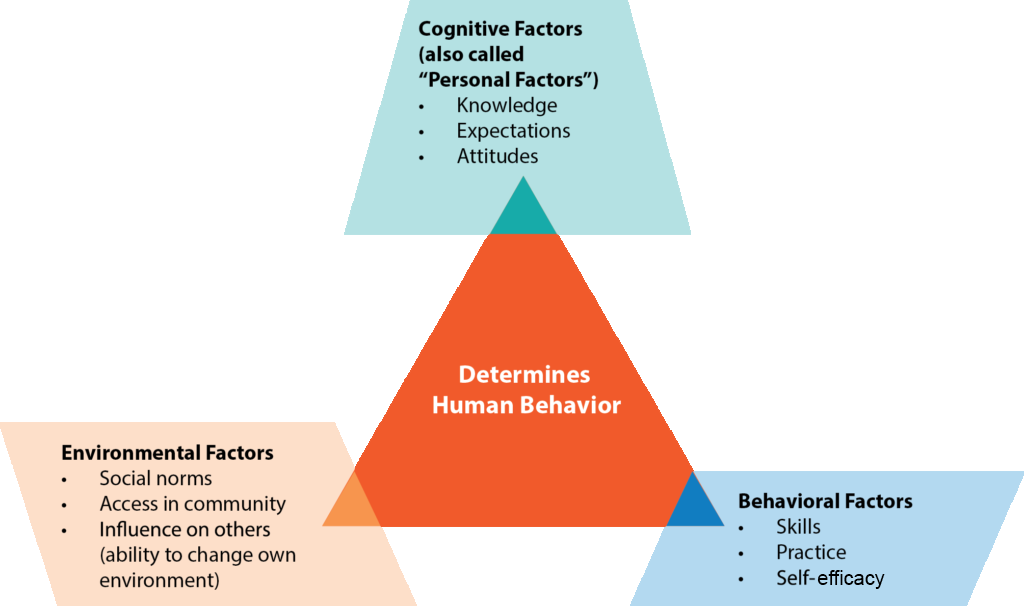

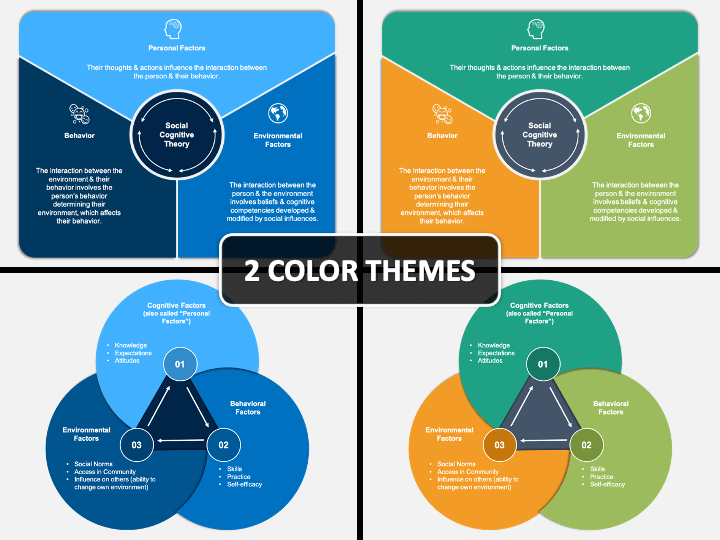
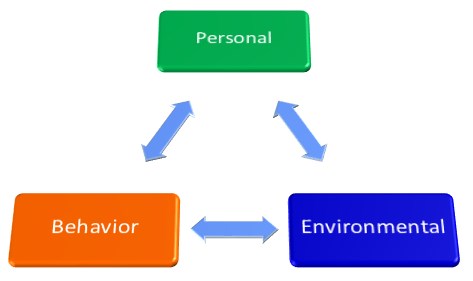

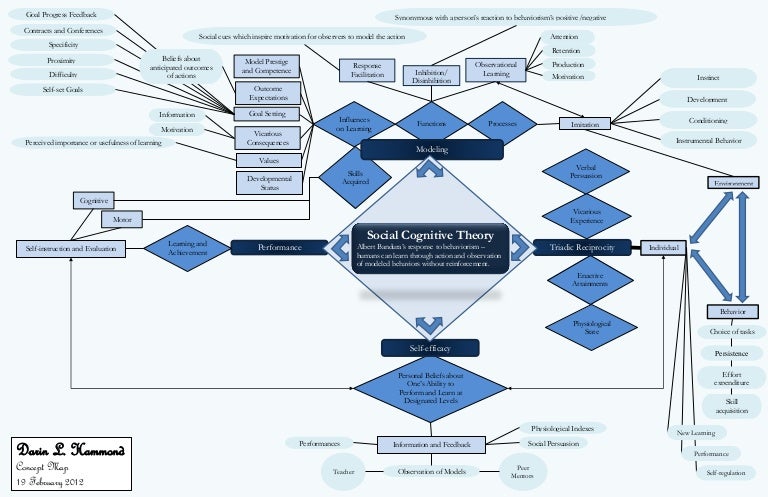







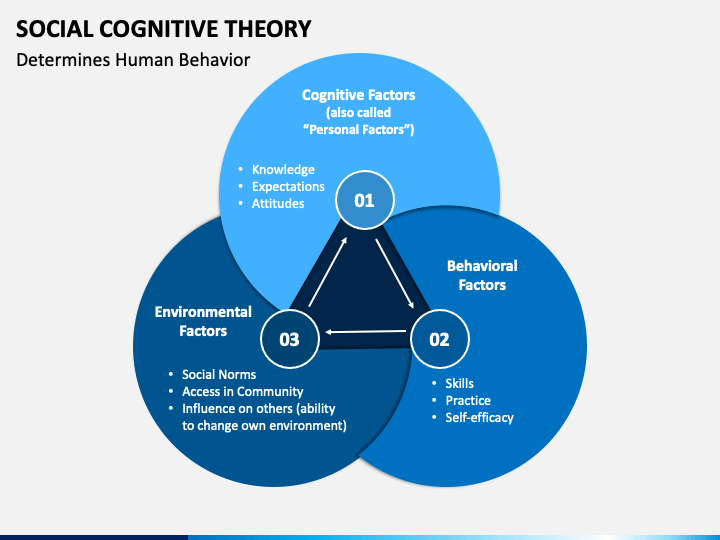
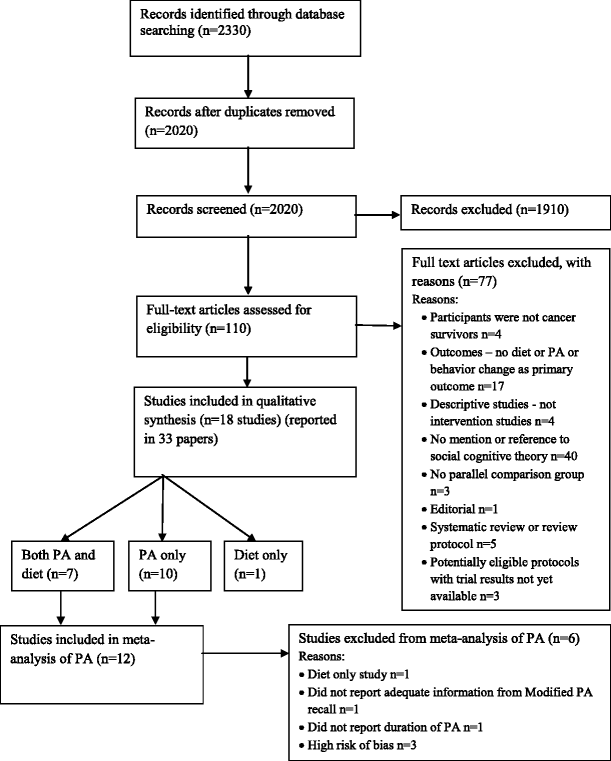


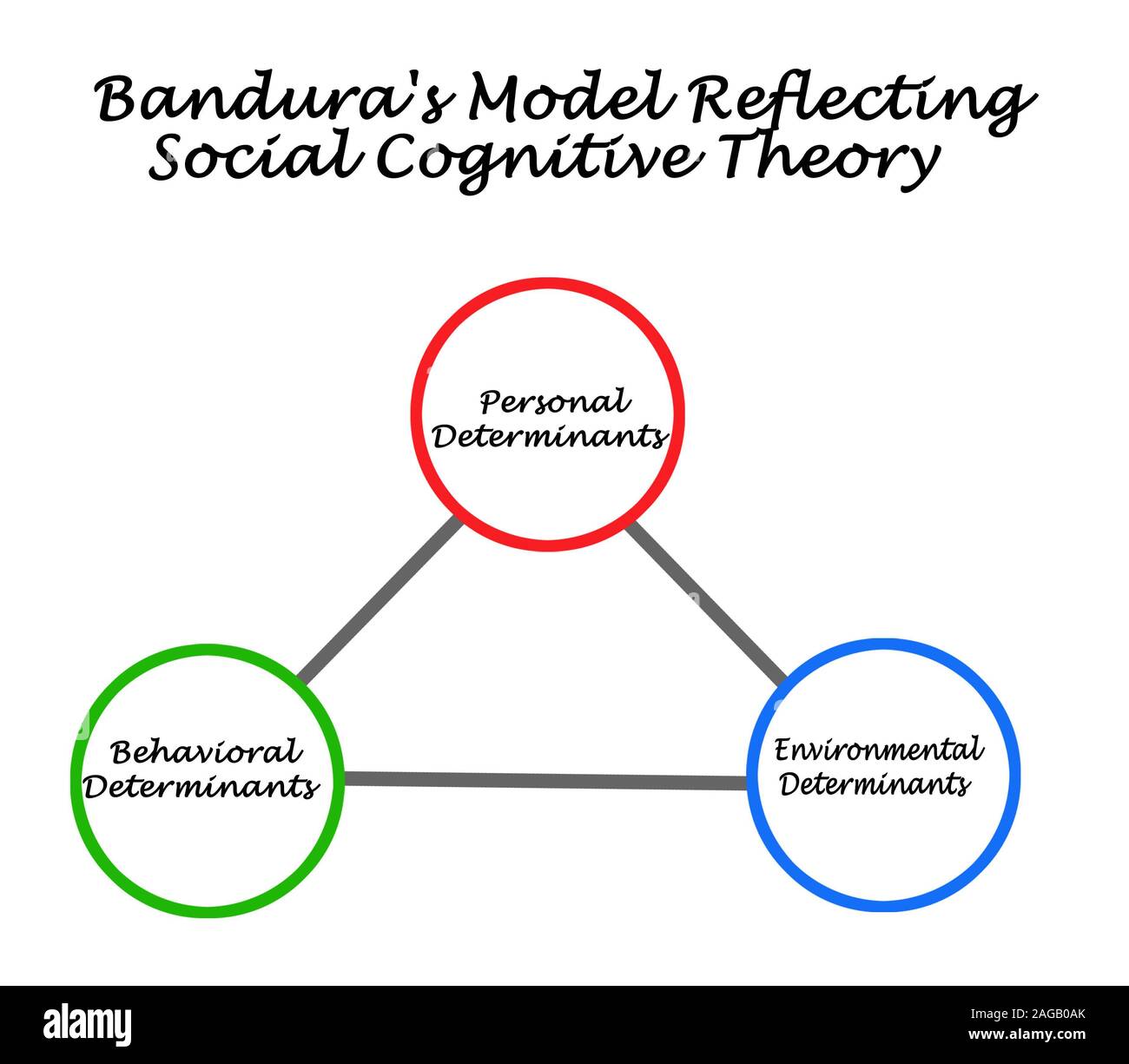

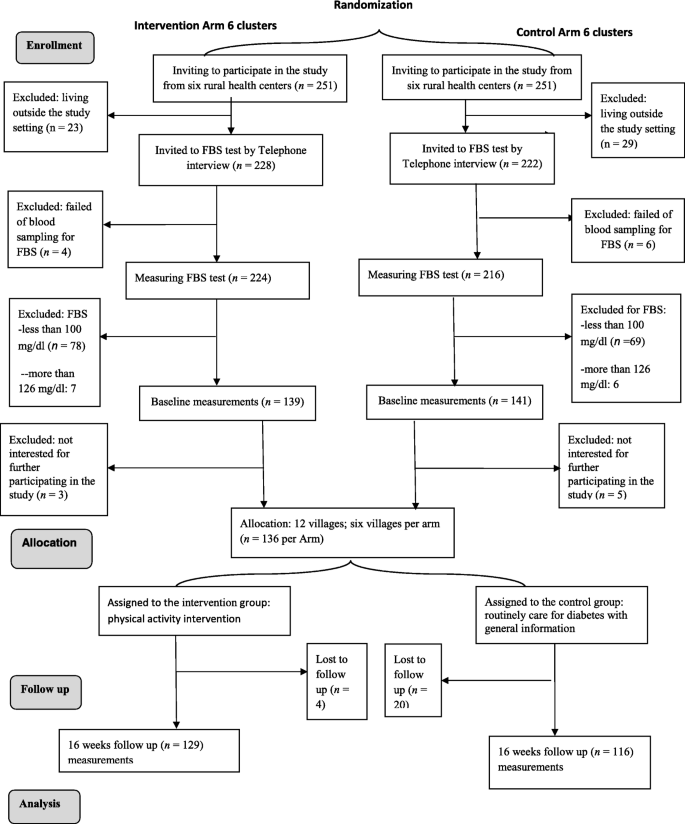

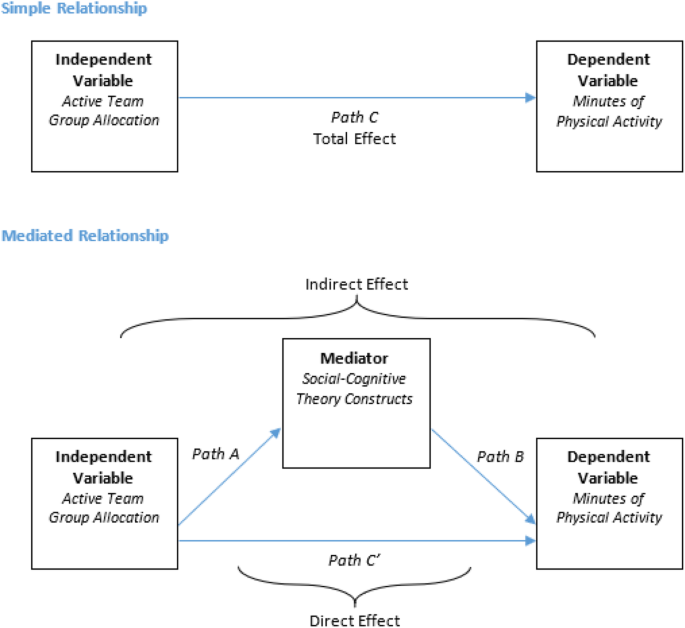
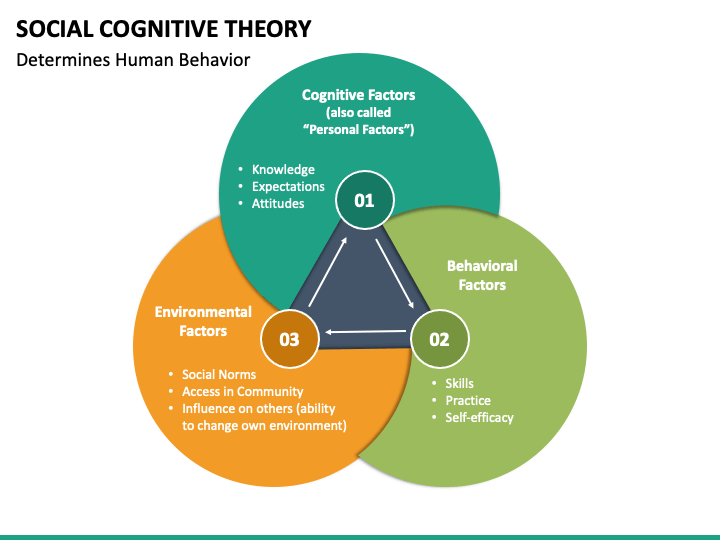

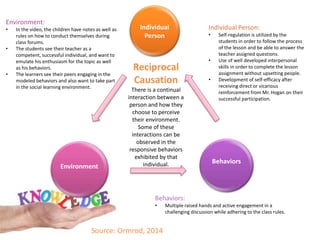

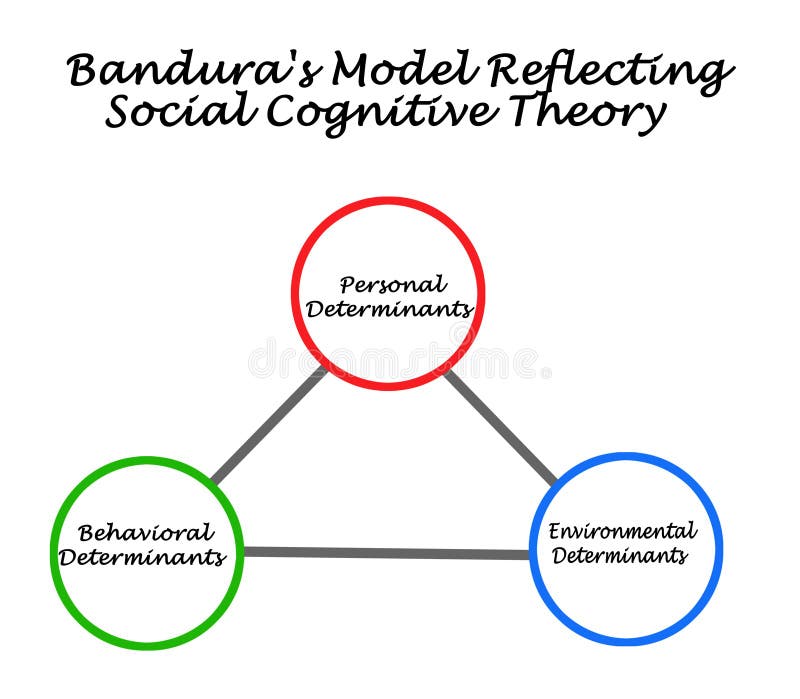



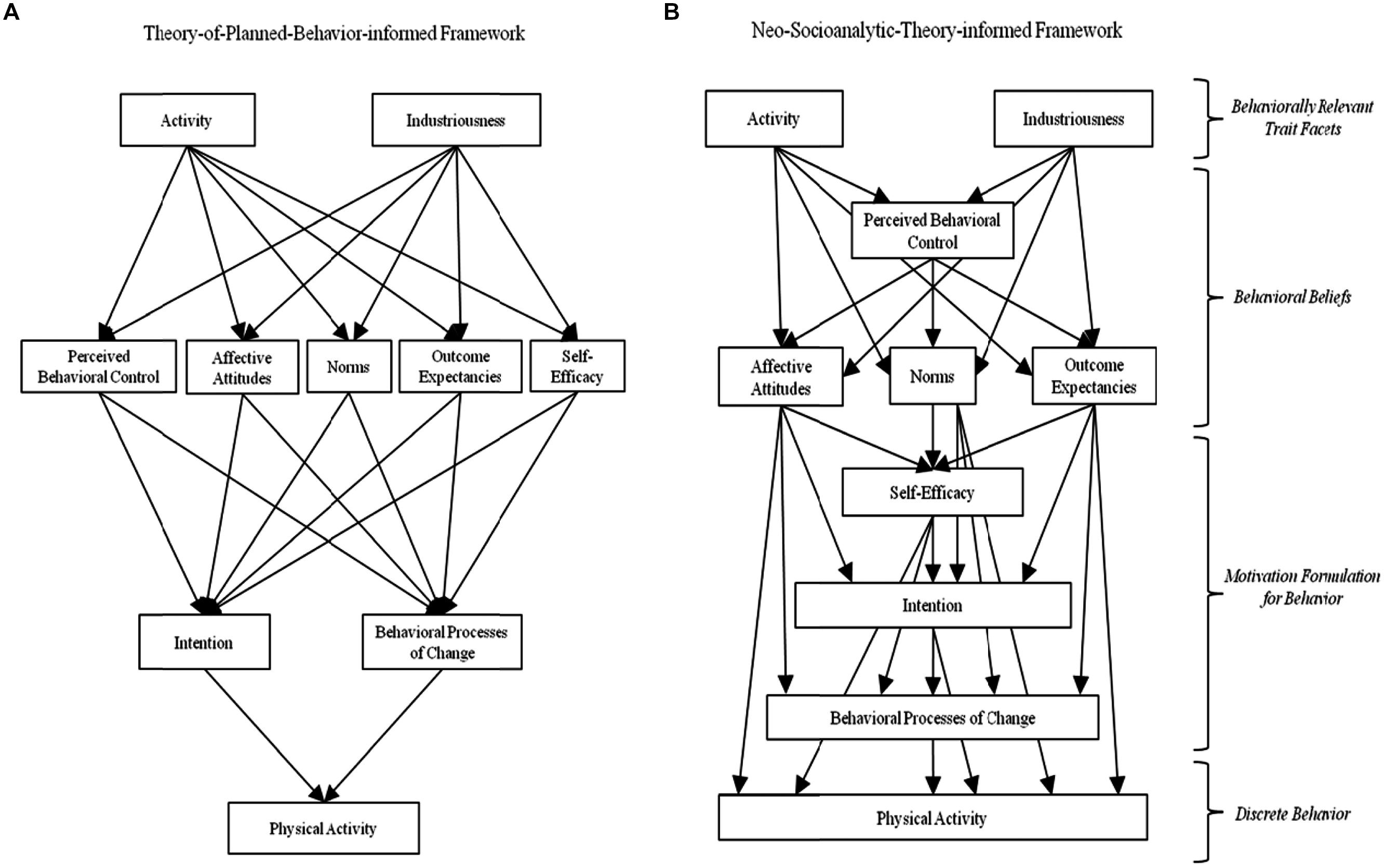




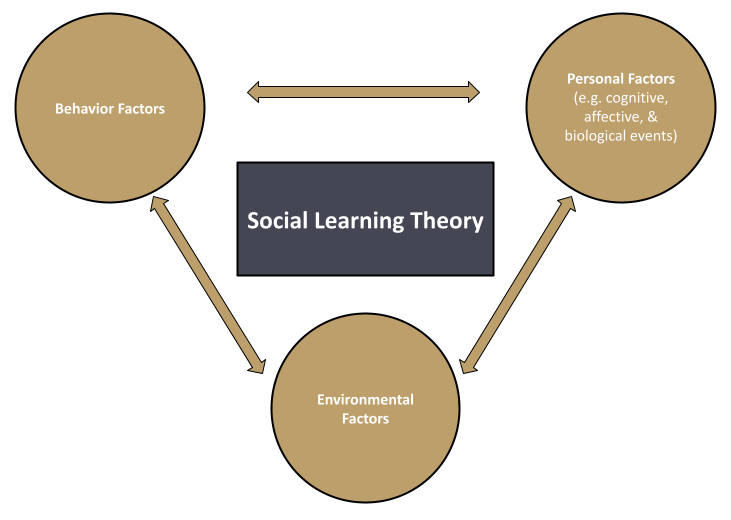

0 Response to "41 social cognitive theory diagram"
Post a Comment